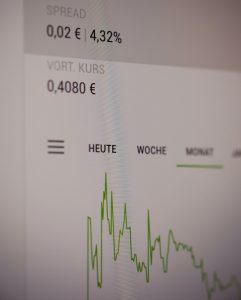Forex trading, also known as foreign exchange trading, is the process of buying and selling currencies with the aim of making a profit. Forex trading is a highly speculative and volatile market, which means that there are risks involved. In this article, we will explore the risks of forex trading and how to manage them.
High volatility
The forex market is highly volatile, which means that prices can fluctuate rapidly and unpredictably. This volatility can be both a blessing and a curse for traders. On one hand, it can offer the potential for large profits in a short amount of time. On the other hand, it also means that losses can accumulate quickly. Traders need to be aware of this volatility and take measures to manage their risk.
Leverage
One of the unique features of forex trading is the use of leverage. Leverage allows traders to control a larger amount of currency than they would be able to with their own capital. While this can amplify profits, it can also amplify losses. Traders need to be careful when using leverage and ensure that they have a solid understanding of how it works.
Market events
The forex market is affected by a variety of market events, such as economic releases, political events, and natural disasters. These events can cause sudden and significant changes in the market, which can result in large losses for traders. Traders need to keep up to date with these events and take measures to manage their risk, such as setting stop-loss orders.
Counterparty risk
Forex trading is conducted through a network of financial institutions and brokers. This means that traders are exposed to counterparty risk, which is the risk that the counterparty (the financial institution or broker) will default on their obligations. Traders need to ensure that they are trading with reputable and regulated brokers to minimize this risk.
Psychological risk
Forex trading can be emotionally challenging, and traders need to be aware of the psychological risks involved. Trading can be stressful, and losses can be difficult to manage. Traders need to have a solid trading plan, stick to their strategy, and manage their emotions to avoid making impulsive decisions.
Managing risk
While forex trading involves risks, there are measures that traders can take to manage them. Here are some tips for managing risk in forex trading:
1. Develop a solid trading plan: A trading plan should include a clear strategy, risk management rules, and a plan for managing losses. Having a plan in place can help traders avoid making impulsive decisions.
2. Use stop-loss orders: Stop-loss orders are orders to close a trade at a pre-determined price. They can be used to limit losses and manage risk.
3. Manage leverage: Traders should use leverage carefully and ensure that they have a solid understanding of how it works.
4. Stay up to date with market events: Traders need to keep up to date with economic releases, political events, and other market events that can affect the market.
5. Choose a reputable and regulated broker: Traders should ensure that they are trading with a reputable and regulated broker to minimize counterparty risk.
Conclusion
Forex trading is a highly speculative and volatile market, which means that there are risks involved. Traders need to be aware of these risks and take measures to manage them. By developing a solid trading plan, using stop-loss orders, managing leverage, staying up to date with market events, and choosing a reputable and regulated broker, traders can minimize their risk and increase their chances of success in forex trading.





